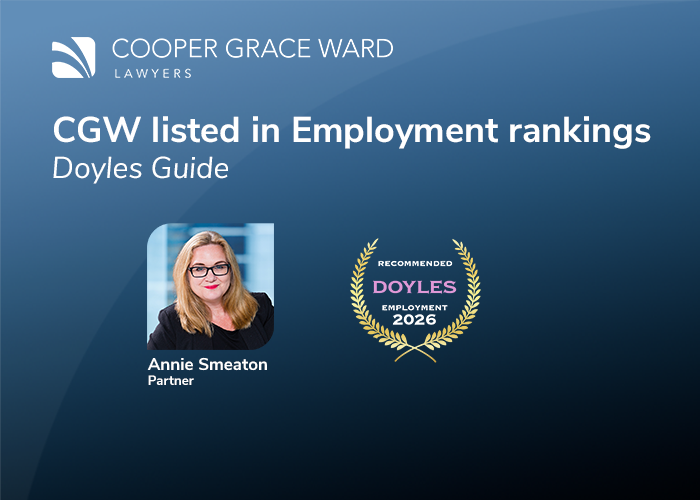The recent Queensland Supreme Court case of Underwood v Underwood [2008] QSC 159 was decided in July this year.
The Facts
- Peter Charles Underwood died in May 2006 aged 64. His estate had approximately $1,300,000 in business assets and around $1,000,000 of other assets.
- He left $213,000 on trust for his daughter Peta, who was 29, had special needs resulting from a drug addiction and lived with her mother.
- He left his sons Derek and Scott $250,000 each, which included a small share of the business. Neither Derek nor Scott had any particular needs. They were both employed and had a reasonable amount of assets. Neither were involved in Peter’s business.
- He left his de facto partner Annette shares valued at $76,000 and paintings. She also received $200,000 from a Workcover payment resulting from his death.
- Peter was divorced from his first wife and was estranged from the children after the divorce.
- Peter’s Will left his interest in the business to his nephews Louis and Glen who both worked in the business. Peter shared a very close relationship with his nephews.
- Peter also left a Statement of Wishes explaining why he had left his assets in this way.
- Each of the children and Annette challenged the Will and argued they should receive a greater share of the estate.
Decision
The Court decided:
- neither Derek nor Scott were entitled to a further share of the estate;
- Annette should receive an additional $30,000; and
- Peta should receive the same as her brothers, plus a further $25,000 to cover immediate financial needs.
Some important factors the Court considered were that:
- the children’s mother received a significant amount in the divorce and would probably leave her estate to them in her Will;
- while Annette had only lived with Peter for 3 years, she cared for him during his illness, which disadvantaged her financially and preserved the value of the estate;
- Annette had received the Workcover payment.
Points to Note
- The Court did not interfere with Peter’s wish that Peta’s share should be held on trust – which is important for clients who have children with particular needs.
- Even an estranged child may have an entitlement under a deceased parent’s Will, but it can be difficult for an estranged adult child to claim a significant part of a large estate.
- Although Louis and Glen still received most of the business assets, the judgment was handed down more than two years after Peter’s death. During this time, they would have been unsure about their entitlement and this would have placed considerable strain on the business.
If Peter, Louis and Glen had implemented a business succession agreement they could have protected the business assets from exposure to claims against Peter’s estate. - It is important to make your Will in consultation with professional advisors. In this case, the Court noted that Peter had considerable discussions with his solicitor and accountant when preparing his Will and explained his intentions in a Statement of Wishes. This was a factor in the Court’s decision to substantially uphold Peter’s wishes to leave his interest in the business to his nephews.
If you have any queries regarding Estate Planning please contact a member of our Estate Planning team on (07) 3231 2444.





